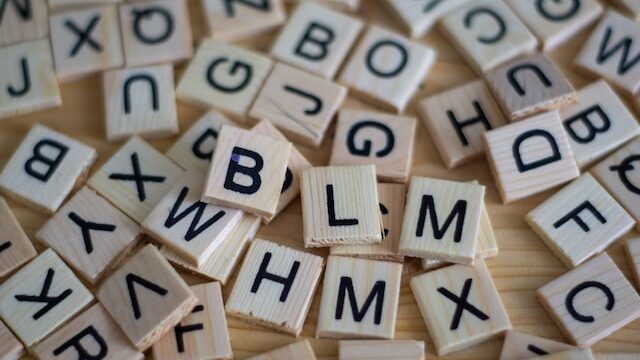ライフハックとしてではなく、英語学習にも極めて有用なのが、著名人が10分程度のプレゼンを行うTEDです。
TED Talksとは、あらゆる分野のエキスパートたちによるプレゼンテーションを無料で視聴できる動画配信サービスのことです。10年ほど前にサービスが開始されてから、政治、心理学、経済、日常生活などの幅広いコンテンツが視聴できることから人気を集めています。
RareJob English Lab
TEDは4000を超える膨大な数の動画があります。しかし慣れないうちは、動画の探し方や視聴のコツが分かりませんよね。この記事では、数多くのTEDを見てきた管理人(塩@saltandshio)が、心を揺さぶられたトークをあらすじと一緒にご紹介します。
ビジネス英会話を効率よく身につけたい方におすすめスクール
シェーン英会話
シェーンは1977年の創業以来、ネイティブ講師が英語を英語で教える「直接教授法」を採用しています。首都圏におけるスクール拠点数は、ネイティブ講師の英会話スクールでNo.1。駅から近いスクールが多いので通いやすく時間を有効に使えます。
スピークバディ パーソナルコーチング
1日1時間の短期集中トレーニングで、あなたの英語力向上をコーチが全力でサポートします。あなたの英語の世界が、劇的に変わります。
キャロル・ドウェック: 必ずできる! ― 未来を信じる「脳の力」 ―
このトークでは、あなたにとって「解決するにはちょっと難しい問題」に対する、2種類の思考パターンを示してくれます。あなたが壁にぶつかったとき、思うのは「解けるほど頭が良くない」ですか?あるいは「まだ解けていないだけ!」でしょうか?(約10分半)。
[PR]無料体験レッスン実施中!全国208校、創業40年の老舗英会話スクール【シェーン英会話】「まだ」によって能力は開発できる
キャロル・ドウェックは、子供たちの「挑戦」と「困難」への対処方法を検証しようと、10歳の子供たちに彼らにとって「ちょっと大変」すぎる困難な課題を与えました。すると、そのなかで、驚くほど前向きな反応を示した子供たちがいました。しかも彼らは問題に対してこのようにコメントしました。
挑戦、大好き!わかることがなにか増えたらイイなって思ったんだ!
彼らは、キャロル・ドウェックが提唱しているところの「成長型マインドセット」を持った子供たちでした。特徴としては、課題や問題に直面した際に「まだ」なにか出来ることがあると考える子供たちです。
その一方、逆の反応を示す生徒たちもいました。
最悪……!とてもみじめだわ……
「成長型マインドセット」とは逆で、彼らが持っているのは「停滞したマインドセット」と呼ばれるものです。「停滞したマインドセット」を持つ彼らにとって、知能は評価の対象です。そのため、問題や課題を解けない自分に対して“失敗”の烙印を押してしまうのです。これは、「まだ」という先を見る力ではなく、「今」現在の状態に囚われているといえます。
[PR]まずは無料カウンセリング”続けるため”の オンライン英語コーチ「スピークバディ パーソナルコーチング」「成長型マインドセット」と「停滞型マインドセット」
「停滞型マインドセット」を持っている子供たちについて、興味深い研究結果があります。彼らに、「テストで1回失敗したら?」と質問を投げかけたところ、なんとこんな返事が返ってきたのです。
今度はたぶん……カンニングする
ほかにも、自分たちよりも成績の低い生徒を探すと答えた子供もいました。「停滞型マインドセット」を持っている子供たちは、自分自身が紛れもなく「よくできた!」と安心するために、難しい問題を避けて通る傾向にあります。脳波検査で調べても、「停滞型マインドセット」を持っている子供たちは、問題に直面しても脳はほとんど活動しませんでした。なぜなら、問題に対して逃げることで対処しようとするからです。
対して、「成長型マインドセット」の子供たちは問題に直面した際に、脳波の活動がとても活発になりました。これは、起きた問題に対して、積極的にそれを改善・修正しようと試みるためです。
[PR]知って得する、知らないと損をする!すぐに役立つ相手に合った「伝え方」のコツ!「やり抜く力」の源は「大いなる自信」
キャロル・ドウェックは、聴衆に向けて「私達はどのように子供を育てているでしょう?」と問いかけます。通知表で良い成績を並ぶ子供でしょうか。大きな夢を描き、問題や課題に直面しても逃げずに取り組む子供でしょうか。
成績や評価など、絶え間なく短期的承認欲求(賞賛獲得欲求)を求める子供は、大人になっても短絡的な評価を求め続けます。そうならないためにも、私たちがいま子供たちに出来ることは、課題や問題に対して果敢に挑もうとするチャレンジ精神を養うことではないでしょうか。
そのために、私たちは子供たちに『賢く褒める』ことをしなくてはなりません。
気をつけなければいけないのは、褒める対象は知能や才能ではありません。失敗に対してその方法をやめさせることでもありません。やるべきは、彼らが取り組んでいることに対し、努力・やり方・集中力・忍耐力・進歩などのプロセスなどを褒めることです。なぜなら、それらを賞賛することによって、どんどん強くて「しなる」子供が創られていくからです。
[PR]全国1400教室の子ども英会話教室【ペッピーキッズクラブ】生まれた環境と育った環境は関係ない
キャロル・ドウェックは、強くて「しなる」子供たちを育てるために、ワシントン大学のゲーム・サイエンティストとチームを組み、「まだ」を報酬としたオンライン数学ゲームを開発しました。
通常の数学ゲームは「今すぐ」もしくは「正しく」答えることで点数を得ますが、このゲームではちょっと違います。「努力」「解き方」「進行」によって報酬を得られるゲームです。このゲームに子供たちが取り組んだ結果、「努力」「解法」「取組み時間」「忍耐力」が揃って向上し、とても難しい問題にぶつかった時ほどやる気が増加するという調査結果が出ました。
ほかにも、キャロル・ドウェックのチームは、子供たちに「何か新しいことや、難しいことを学習しようとするときの起きるイヤな気持ち(コンフォートゾーン=脳が慣れ親しんだ現状)を押しのけると、脳内のニューロンが新しく強い結合を作る。それを何度も行うことによって、君達の頭がもっと良くなっていくよ」と、脳の仕組みを伝えました。その結果、脳の仕組みを教わった子供たちは進学した際に急激に成績が伸び、仕組みを教わらなかった子供たちは進学後に成績が低下し続けたのです。
キャロル・ドウェックのチームは貧困地域や先住民族が住む地域でも、この脳の仕組みを教えました。すると、入学当初は鉛筆もまともに握れなかった子供たちが、数年後には学区や地域で1位になるほどまで、学力が著しく向上したのです。
これまで、努力や困難課題は「頭が悪い」という思いや「無理だ」という諦めの気持ちを生むものでした。貧困層の人々には、慣れ親しんだ負の習慣ともいえるでしょう。しかし、「努力」や「困難」こそが自分を成長させて、難題に立ち向かっている時こそ、自分が賢くなっていることを子供たちが知った結果、彼らの能力は大きく成長したのです。
困難に対する捉え方がマインドチェンジされたことによって、このような驚くべき変化が生まれたのです。
[PR]しちだの魔法ペンなら35日でバイリンガルに!楽天4部門1位の英会話!<七田式>まとめ:「まだ」は子供たちの希望になる
ある日、キャロル・ドウェックのもとに13歳の少年から手紙が届きます。
“Dear Professor Dweck, I appreciate that your writing is based on solid scientific research, and that’s why I decided to put it into practice.
「ドゥエック教授へ。僕は、貴方の著書が確固たる科学的研究に基づいていることを感謝してます。そして、だからこそ実践してみよう!と決めたんです。
I put more effort into my schoolwork, into my relationship with my family, and into my relationship with kids at school, and I experienced great improvement in all of those areas.
僕は、学校のことをもっと頑張るようにしました。それに、家族との関係、 そして学校のみんなとのことも。そしたら、それぞれ全部でめざましい進歩を体験できました!
I now realize I’ve wasted most of my life.”
僕は、人生のほとんどを無駄に生きてきたって今ならわかります」
キャロル・ドウェックは、様々な「能力」が開発・育成できるものである以上、「まだ」に 満ち溢れた世界に生きること、そして真に成長可能な「場」に生きることが全ての子供たちの「基本的人権」だと、聴衆に語り掛けます。
子供たちだけでなく、新しいことを学び続けようとする限り、私たち大人にとっても「成長型マインドセット」は未来を明るくするでしょう。
「まだ」私たちにも伸びしろは残されているのですから。
英語全文
The power of yet.
I heard about a high school in Chicago where students had to pass a certain number of courses to graduate, and if they didn’t pass a course, they got the grade “Not Yet.” And I thought that was fantastic, because if you get a failing grade, you think, I’m nothing, I’m nowhere. But if you get the grade “Not Yet” you understand that you’re on a learning curve. It gives you a path into the future.
<全文を読む>▼クリック▼
So what do they do next? I’ll tell you what they do next. In one study, they told us they would probably cheat the next time instead of studying more if they failed a test. In another study, after a failure, they looked for someone who did worse than they did so they could feel really good about themselves. And in study after study, they have run from difficulty. Scientists measured the electrical activity from the brain as students confronted an error. On the left, you see the fixed mindset students. There’s hardly any activity. They run from the error. They don’t engage with it. But on the right, you have the students with the growth mindset, the idea that abilities can be developed. They engage deeply. Their brain is on fire with yet. They engage deeply. They process the error. They learn from it and they correct it.
How are we raising our children? Are we raising them for now instead of yet? Are we raising kids who are obsessed with getting A’s? Are we raising kids who don’t know how to dream big dreams? Their biggest goal is getting the next A or the next test score? And are they carrying this need for constant validation with them into their future lives? Maybe, because employers are coming to me and saying, we have already raised a generation of young workers who can’t get through the day without an award.
So what can we do? How can we build that bridge to yet?
Here are some things we can do. First of all, we can praise wisely, not praising intelligence or talent. That has failed. Don’t do that anymore. But praising the process that kids engage in: their effort, their strategies, their focus, their perseverance, their improvement. This process praise creates kids who are hardy and resilient.
There are other ways to reward yet. We recently teamed up with game scientists from the University of Washington to create a new online math game that rewarded yet. In this game, students were rewarded for effort, strategy and progress. The usual math game rewards you for getting answers right right now, but this game rewarded process. And we got more effort, more strategies, more engagement over longer periods of time, and more perseverance when they hit really, really hard problems.
Just the words “yet” or “not yet,” we’re finding, give kids greater confidence, give them a path into the future that creates greater persistence. And we can actually change students’ mindsets. In one study, we taught them that every time they push out of their comfort zone to learn something new and difficult, the neurons in their brain can form new, stronger connections, and over time they can get smarter.
Look what happened: in this study, students who were not taught this growth mindset continued to show declining grades over this difficult school transition, but those who were taught this lesson showed a sharp rebound in their grades. We have shown this now, this kind of improvement, with thousands and thousands of kids, especially struggling students.
So let’s talk about equality. In our country, there are groups of students who chronically underperform, for example, children in inner cities, or children on Native American reservations. And they’ve done so poorly for so long that many people think it’s inevitable. But when educators create growth mindset classrooms steeped in yet, equality happens. And here are just a few examples. In one year, a kindergarten class in Harlem, New York scored in the 95th percentile on the National Achievement Test. Many of those kids could not hold a pencil when they arrived at school. In one year, fourth grade students in the South Bronx, way behind, became the number one fourth grade class in the state of New York on the state math test. In a year to a year and a half, Native American students in a school on a reservation went from the bottom of their district to the top, and that district included affluent sections of Seattle. So the native kids outdid the Microsoft kids.
This happened because the meaning of effort and difficulty were transformed. Before, effort and difficulty made them feel dumb, made them feel like giving up, but now, effort and difficulty, that’s when their neurons are making new connections, stronger connections. That’s when they’re getting smarter.
I received a letter recently from a 13-year-old boy. He said, “Dear Professor Dweck, I appreciate that your writing is based on solid scientific research, and that’s why I decided to put it into practice. I put more effort into my schoolwork, into my relationship with my family, and into my relationship with kids at school, and I experienced great improvement in all of those areas. I now realize I’ve wasted most of my life.”
Let’s not waste any more lives, because once we know that abilities are capable of such growth, it becomes a basic human right for children, all children, to live in places that create that growth, to live in places filled with yet.
Thank you.
<閉じる>

\ ほかにも気になるトークが満載! /










